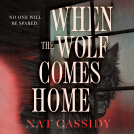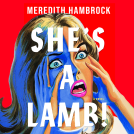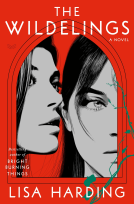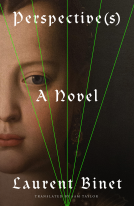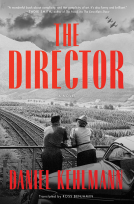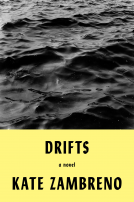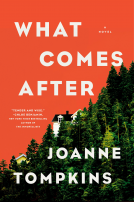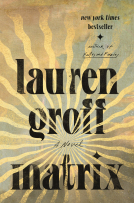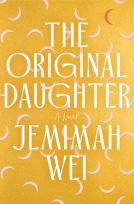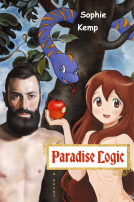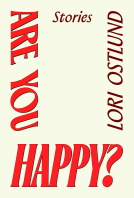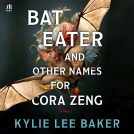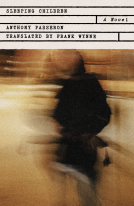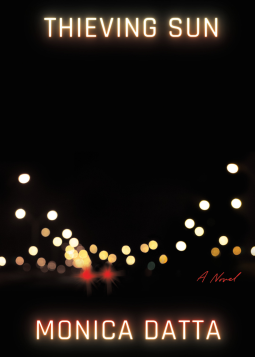
Thieving Sun
A Novel
by Monica Datta
This title was previously available on NetGalley and is now archived.
Send NetGalley books directly to your Kindle or Kindle app
1
To read on a Kindle or Kindle app, please add kindle@netgalley.com as an approved email address to receive files in your Amazon account. Click here for step-by-step instructions.
2
Also find your Kindle email address within your Amazon account, and enter it here.
Pub Date Mar 26 2024 | Archive Date Mar 26 2024
Astra Publishing House | Astra House
Talking about this book? Use #ThievingSun #NetGalley. More hashtag tips!
Description
In this searing debut novel, for readers of Katie Kitamura and Rachel Cusk, the tragic aftermath of a youthful relationship years after its end brings the life of a mourning woman in New York--and the pursuit of art--into stark relief.
Told in short passages through a musical device, this international story follows Julienne and Gaspar to Syria, China, Germany and elsewhere.
Julienne, a student of sculpture, and Gaspar, a young composer, fall in love at a small college and share a home for more than a decade before encountering the fundamental rift that will change their lives. The reverberations of grief force Julienne to confront her painful past including the mystery of her own birth and the fantastical story ascribed to it by her flight attendant mother, so that she can envision, for the first time, a real future.
Ultimately, Thieving Sun is a profound and contemporary meditation on art, grief, debt, suicide, loss, and the danger of being alive.
Advance Praise
"Monica Datta's prose gallops like music and glitters like shards. Formally daring and compulsively readable, Thieving Sun heralds the arrival of an extraordinary talent." —Susan Choi, author of National Book Award winner Trust Exercise
"Thieving Sun is a highly intelligent, staggeringly inventive novel structured by music scales indicating time, but it's more than that: emotionally powerful, sad, whimsical, and beautiful, this book is a dizzying delight. Monica Datta is a startlingly inventive writer who has written a moving story of love and loss. Absolutely brilliant." —Brandon Hobson, author of National Book Award finalist The Removed
"Intricate, enigmatic, piccant and fascinating." —Lucy Ellman, author of Goldsmiths Prize winner Ducks, Newburyport
Marketing Plan
MARKETING AND PUBLICITY PLANS • Cover reveal on Astra House social media • National media campaign including print, radio, podcasts, and online coverage • Pitch for feature stories and profiles, as well as original pieces by the author • Target outreach to publications and reviewers focused on debuts, literary fiction, experimental fiction, multidisciplinary writing, and global literature • Select author tour including independent bookstores and festivals • Fiction awards campaign • Library promotion • Book club promotion
Available Editions
| EDITION | Other Format |
| ISBN | 9781662602573 |
| PRICE | $23.00 (USD) |
| PAGES | 216 |
Links
Available on NetGalley
Featured Reviews
 Mark B, Reviewer
Mark B, Reviewer
Monica Datta’s debut novel “Thieving Sun” is a delight. The narrative is erudite and compelling. Word choice is delicate and meticulous. The main characters, Julienne and Gaspar, are complex, flawed, elegant, and beguiling - often struggling, though maybe not always strongly enough.
“Thieving House” is a special treat for art lovers. It is sophisticated and subtle. References to sculpture, world music, drama, architecture abound. Travel is provided liberally around the world.
In addition to being a demonstrably gifted and talented writer, teacher and coach, Datta’s training as an architect is put to wonderful use. The structure of the “Thieving Sun” is unique - a collage that is a challenge and a charm. Single letters, often with a symbol, open each chapter. All but the most devoted literary sleuths are encouraged to check the Notes section where Datta graciously provides some, if not all, roadmap clues. This results in the characters evolving, narrative spaces being filled-in. A reader’s attention is easily held - wanting to ensure that subtle clues are never missed.
Monica Datta is bursting with talent. Here’s to hoping for the success of “Thieving Sun” while eagerly looking forward to coming attractions.
Thanks to Astra House and NetGalley for the eARC.
 Megan G, Bookseller
Megan G, Bookseller
The tone of this novel was ethereal. It was at once thrilling and melancholic to uncover the story of this couple’s demise. As a reader, I felt as though I was solving a puzzle and achieving something, but as a human being I felt like I was spying on the intimate interactions of the protagonists. The quiet rumination on every page was musical, and the use of stream of consciousness lent itself well to the musicality.
 Laura G, Educator
Laura G, Educator
I've been really curious about Astra House since they published two of my favorite books last year that were crazy different from each other, Tyriek White's We Are a Haunting, and Esther Yi's Y/N, and now I want to devour everything they print. This book is totally different from those two, and I loved it just as much!!! It's VERY experimental, so be prepared for that. This might sound weird but it was like a spiderweb, crystal-like and with a logic that is at the same time very raw and very cerebral with the musical scales and the story plotted around them like a puzzle or a riddle. The writing style is beautiful, like poets' novels. It's also a great book about depression that isn't depressing. Despite everything that life threw at Julienne, I really wanted her to be happy.
Thank you to NetGalley and Astra House for the ARC! It's beautiful but (purely technical note) a little sticky to load and needs page numbers in the notes!
In <i>Your Brain is a Time Machine</i>, Dean Buonamano takes on that age-old mystery, time, examining the way time has been understood in vastly different, seemingly incompatible ways by physicist and neuroscientists. He breaks down the prevailing theories in physics, labeled as presentism and eternalism; presentism, as I understand his explanation, is the idea that the present, past, and future exist as three separate realms, whereas eternalism argues that these categories are illusory and that past, present, and future exist all at once. This notion long predates physics, though, going back to at least Parmenides.
I bring this up here and now (or perhaps in the past in which I wrote this or the future in which you read this, which might all be one and the same) because Monica Datta’s <i>Thieving Sun</i>, is a book about, among other things, our lived experience of time. The book traces, brilliantly to my mind, the life of its protagonist, Julienne, from childhood ballet lessons in the 70s through the election of 2016, with particular focus on her complicated relationship with a composer named Gaspar, which becomes a defining helix of her life and the centerpiece of the novel. But rather than treating past, present, and future as different dimensions, Datta's novel braids them so that they are so intricately intertwined that we can no longer see them as separate and distinct.
Or maybe "see" is wrong; the novel is steeped in music. Indeed, it opens not with a "Table of Contents" but of "Accidents," sheet music whose staves announce the ascent of notes that will comprise each of the book's sections. Immediately, we are flung into Gaspar's auditory and conceptual frame of mind, wherein he describes working in Damascus and how he wishes he could record the copper workers, "playing the material as instrument, etching and scuffing and stretching and brazing...each sound...so supple[.]" This blurring of the boundaries between the non-musical and music itself becomes not only a thematic strand running through it, but defines the medium of the book itself, which is unerringly musical on the level of the word and phrase, along with the scales that provide its formal architecture.
In short bursts of passages reminiscent of Renata Adler's <i>Speedboat</i>, we are introduced to a cast of characters who spiral around Julienne--Gaspar's friends Leila and Axel, Gaspar's parents, another Gaspar, and eventually Bob, the man she winds up in a tepid relationship; the noodles on his beard as they are dining mirroring an emotional sloppiness and lack of self-awareness. But it's Julienne and Gaspar on whom we are mainly focused, even when we know his fate (early on, we learn of his sudden and unexpected death), and even once Julienne has at last taken dramatic action in her own life, taking up sculpture, for instance, we cannot help but sense the ways in which he continues to, in her words, "live deep in the marrow." As with Adler's scenes, Datta's often cut away sharply, but unlike <i>Speedboat</i>, which revels (or resigns itself to) irony, <i>Thieving Sun</i> is suffused by a sometimes-raw, always-candid emotional engagement, an unabashed willingness to examine and explore vulnerability.
SPOILER HERE. If I had a single gripe it would be that the book's organizational logic, "based loosely on the Arabic structure known as the maqam," is only revealed in a note to the reader at the end; each note corresponds to a different period in Julienne's life, with one note reserved for "direct address" of Gaspar. To me, knowing this structure only enhances the way one experiences the book, because it is precisely through its leaps forward and backward in time, and in the ensuing juxtapositions, that the book's ingenuity arises. One moment we are watching Julienne finally embracing sculpture on the scale of Serra who she has long admired; the next we are seeing her arrive in Berlin for her study abroad in college, and in the next moment we see her at a dull paralegal job buying an eraser that becomes her favorite object for the way it can be "reshaped again and again." Indeed, this is a novel that reshapes itself again and again--through multiple relationships, art forms, incidents, and stages of life--grief and self-losing and rediscovering. If you're anything like me, you'll gladly cast aside the comforts of simple chronology and order for these other, richer resonances, the music that, if anything, life seems to play upon us.
Thanks to Astra House Press and NetGalley for an e-ARC of this book.
